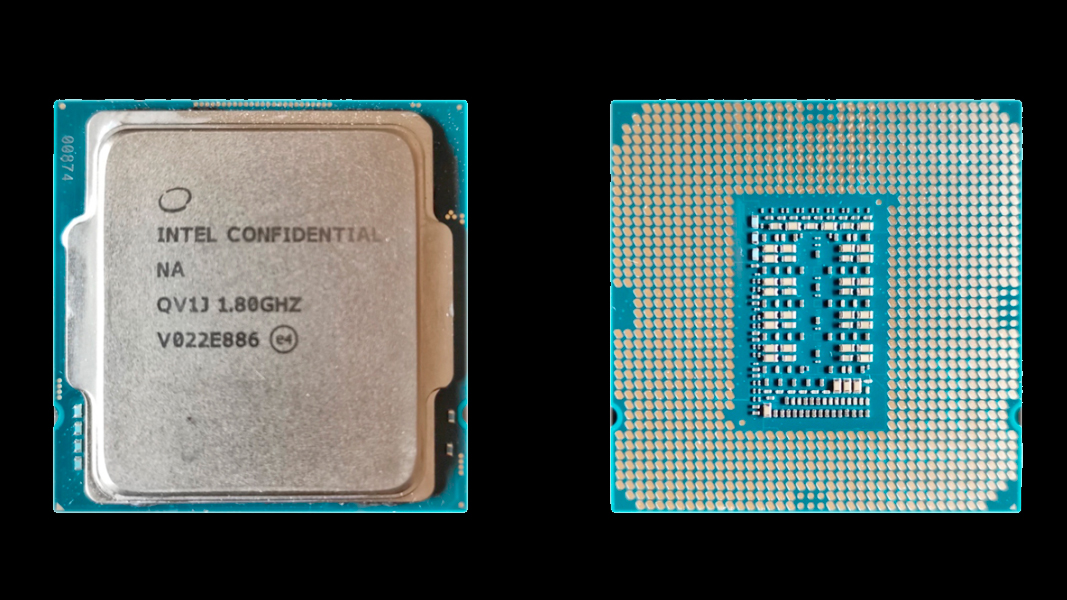Chinese news outlet ijiandao (via Harukaze5719) has reportedly shared the general specifications for Intel’s upcoming Rocket Lake and Comet Lake Refresh processors. Apparently, both families will live under the same 11th-Gen moniker.
Rocket Lake, which is the more interesting lineup out of the two, will arrive furnished with Intel’s 14nm Cypress Cove cores and Xe graphics. Like AMD, Intel has promised double-digit instruction per cycle (IPC) uplifts. The first leaked benchmark submissions have revealed that there might be some truth to Intel’s word. However, Rocket Lake’s multi-core performance remains to be seen since the new chips will max out at eight cores, a big regression compared to Comet Lake that pushed the maximum configuration to 10 cores.
Above all, Rocket Lake will, at last, bring PCIe 4.0 support to an Intel mainstream platform. Intel is last to the party since PCIe 4.0 support was already present in AMD’s previous-gen Ryzen 3000 (codename Matisse) processors that debuted one year ago.
Intel 11th Generation Rocket Lake Specifications
| Processor | Cores / Threads | L3 Cache (MB) | Graphics (EUs) | TDP (W) |
|---|---|---|---|---|
| Core i9-11900K | 8 / 16 | 16 | 32 | 125 |
| Core i9-11900 | 8 / 16 | 16 | 32 | 65 |
| Core i9-11900T | 8 / 16 | 16 | 32 | 35 |
| Core i7-11700K | 8 / 16 | 16 | 32 | 125 |
| Core i7-11700 | 8 / 16 | 16 | 32 | 65 |
| Core i7-11700T | 8 / 16 | 16 | 32 | 35 |
| Core i5-11600K | 6 / 12 | 12 | 32 | 125 |
| Core i5-11600 | 6 / 12 | 12 | 32 | 65 |
| Core i5-11600T | 6 / 12 | 12 | 32 | 35 |
| Core i5-11500 | 6 / 12 | 12 | 32 | 65 |
| Core i5-11500T | 6 / 12 | 12 | 32 | 35 |
| Core i5-11400 | 6 / 12 | 12 | 24 | 65 |
| Core i5-11400T | 6 / 12 | 12 | 24 | 35 |
According to the Chinese publication, the Rocket Lake Core i9 and Core i7 SKUs will use the same recipe: eight cores, 16 threads, and 16MB of L3 cache. Aside from TDP (thermal design power), operating clocks will be the biggest differentiator between the processors. Therefore, you can purchase an unlocked Core i7, and if you’re lucky, overclock it to the same specifications as the more expensive Core i9 model. On the other hand, the Core i5 parts will retain the six-core, 12-thread configuration with 12MB of L3 cache.
Graphics-wise, the Rocket Lake processors wield Intel’s Xe solution, but the number of Execution Units (EUs) will vary according to the processor. If the news outlet’s information is accurate, the Core i9, Core i7, and the majority of the Core i5 lot will arrive with 32 EUs: The Core i5-11400 and Core Core i5-11400T are the only models limited to 24 EUs.
Thus far, there is no evidence that Intel will release graphics-less F-series models.
Intel 11th Generation Comet Lake Refresh Specifications
| Processor | Cores / Threads | L3 Cache (MB) | Graphics (EUs) | TDP (W) |
|---|---|---|---|---|
| Core i3-11100 | 4 / 8 | 6 | 24 | 65 |
| Core i3-11100T | 4 / 8 | 6 | 24 | 35 |
| Core i3-11300 | 4 / 8 | 8 | 24 | 65 |
| Core i3-11300T | 4 / 8 | 8 | 24 | 35 |
| Core i3-11320 | 4 / 8 | 8 | 24 | 65 |
According to the publication, Intel might not release any Rocket Lake Core i3, Pentium, or Celeron models. The publication claims that the chipmaker will simply rewarm the existing Comet Lake silicon. As a result, the Comet Lake Refresh chips will retain the same core and thread specifications, albeit the higher operating clocks. For the Core i3 models, we can expect improvements that span from 200 MHz to 300 MHz, while the entry-level Pentium and Celeron parts will only get a limited treatment spanning between 100 MHz to 200 MHz.
There are mentions of two different graphics solutions for Comet Lake Refresh. The UHD Graphics 630 engine will offer 24 EUs, while the UHD Graphics 610 will be restricted to 12 EUs.
Whether it be Rocket Lake or Comet Lake Refresh, the processors will work fine on current LGA1200 motherboards with the Intel 400-series chipset. In the case of Rocket Lake, some motherboards already come equipped with all the necessary circuitry for PCIe 4.0, so there’s no urgency to upgrade. Nevertheless, Intel will likely introduce the 500-series motherboards that are purpose-built for Rocket Lake. Regardless, it doesn’t seem like a good idea to invest in a dying platform with Rocket Lake being an interim product before Alder Lake, which demands the new LGA1700 socket.
